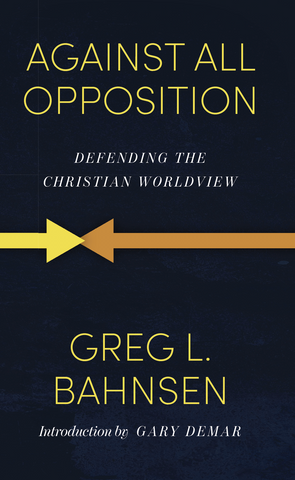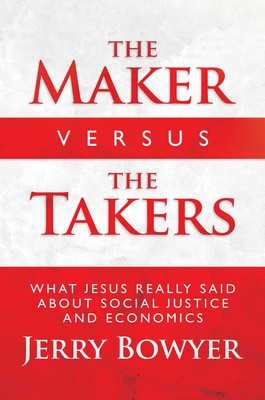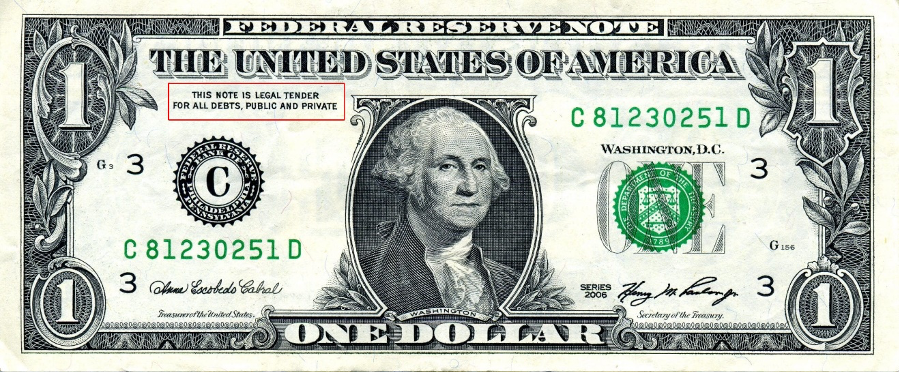With some variations, those who hold to a biblical economic model share many fundamental principles with advocates of an unregulated free market, or, as I hope to demonstrate, free marketers share many fundamental economic principles with advocates of a biblical worldview. John W. Robbins writes, in his critique of Ayn Rand’s Objectivist philosophy, “That the structure of knowledge that she erected, in which metaphysics depends on epistemology, ethics on both, and politics on all three … eliminated the possibility of both limited government and the laws of logic. She smuggled those ideas in from Christianity, whose structure, whose systematic philosophy, she rejected.”[1] Of course, she was not alone. Rushdoony makes a similar point in his critique of naturalistic philosophies in general:
Thus natural man does have knowledge, but it is borrowed knowledge, stolen from the Christian-theistic pasture or range, yet natural man has no knowledge, because in terms of his principle—the ultimacy of his thinking—he can have none, and the knowledge he possesses is not truly his own…. The natural man has valid knowledge only as a thief possesses goods.[2]
Rushdoony is not saying that non-Christians don’t have knowledge of things, reason reasonably, or act justly. He contends that these supposed “self-evident truths” presuppose a transcendental starting point. Outside the biblical framework, if a person is consistent with his naturalistic presuppositions, knowledge (certainty) is impossible, not just about economics but about everything. Facts do not speak for themselves. If they did, then there would be no debate over economic philosophies and practice. Like those who hold to a managed economy, proponents of an economic free market “are unaware that their theory rests on certain God-given external conditions. They simply accept these limitations of nature as ‘given,’ and they do not bother to inquire as to the source of them. Such investigations, every secular economist would tell us, are not relevant, are not scientific, cannot be demonstrated by ethically neutral, rationalistic presuppositions.”[3]

Against All Opposition
An apologetic methodology that claims Christians should be "open," "objective," and "tolerant" of all opinions when they defend the Christian faith is like a person who plans to stop a man from committing suicide by taking the hundred-story plunge with him, hoping to convince the lost soul on the way down. No one in his right mind would make such a concession to foolishness. But Christians do it all the time when they adopt the operating presuppositions of unbelievers. There are no "neutral" assumptions about reality.
Buy NowHow does the naturalist/materialist account for the fixed nature of economic self-evident laws and results and the moral basis for the free market when, as Lester Frank Ward argues, “nature has neither feeling nor will, neither consciousness nor intelligence”[4] or, to use Carl Sagan’s opening lime in Cosmos, “the universe is all that is or ever was or ever will be”?[5] How can cosmic purposelessness bring about cosmic purpose? The materialists can’t tell us within the parameters of their naturalistic worldview. They must borrow their fundamental principles from the theistic world, in particular, the world of the Bible. They do the same with morality as I show in my soon-to-be-released book Why It Might Be OK to Eat Your Neighbor: If Atheism in Right Can Anything be Wrong?
The Starting Point
The Bible begins with two uncontested presuppositions: First, God exists, and second, He is the Creator (Gen. 1:1). A third presupposition logically follows from the first two: “The earth is the LORD’s and all it contains” (Ps. 24:1; see 1 Cor. 10:26). Not only the land, but the stuff of creation also belongs to God: “For every beast of the forest is Mine, the cattle on a thousand hills” (Ps. 50:10).
Private (personal) property rights are because God is the prior owner who delegates ownership to His creation. The creator/ownership paradigm is the model for how we establish the principle of private property and the laws that go with it. If I own a piece of property and decide to sell it or give it away, the transaction has legitimacy because I had legal title to the property, and I voluntarily decided to part with it. In the same way, God’s original ownership makes subsequent ownership possible and meaningful. Without the reality of prior ownership, the idea of private property is little more than a social construct. If we subscribe to the evolutionary model, then how is private property a defensible right?
Unlike so many esoteric religions, the biblical worldview embraces the material world without either deifying it or secularizing it by separating it from religious considerations. Genesis 1:31 gives us God’s own evaluation of His creation: “And God saw all that He had made, and behold it was very good.” Even the fall did not erase this evaluation. Paul, in the NT, declares: “For everything created by God is good, and nothing is to be rejected, if it is received with gratitude; for it is sanctified by means of the word of God and prayer” (1 Tim. 4:4-5). The Bible rejects the false spirituality of what became known as Gnosticism, the relegation material things to a low plane of being. “Touch not!” “Taste not!” “Handle not!” (Col. 2:21, 23). Or possibly the Judaizers who operated in terms of added traditions (Mark 7). The Bible is a very material book, and matter matters to God, including economic matters. We know this by the way the Bible presents economic issues within a specific creational and moral framework.
No. 1: The eighth commandment states without equivocation, “You shall not steal” (Ex. 20:15). Restitution is required for most property crimes (Ex. 21:33–34; 22:3, 5, 6; 22:12). Those not associated with the crime are not taxed to punish the thief. If a person is not able to pay restitution, then indentured servitude is a lawful option.
No. 2: Property is protected based on Deuteronomy 19:14; 27:17; Job 24:2; Proverbs 22:28; 23:10.
No. 3: Civil governors are bound by these commandments. The case of Naboth’s vineyard is a good example (1 Kings 21). Ahab king of Samaria wanted Naboth’s vineyard for a vegetable garden. The king was willing to buy it. “If you like,” he said to Naboth, “I will give you the price of it in money” (1 Kings 21:2). Ahab even offered to give Naboth another vineyard in its place. Naboth rejected the offers, so Ahab and Jezebel conspired to charge Naboth with a capital crime. He was executed, and Ahab took possession of the property.
No 4: The Bible emphasizes hard currency—gold and silver. Gold is in Eden, “and the gold of that land is good” (Gen. 2:12).
No 5: The Bible considers inflation to be a violation of the law: “Your silver has become dross, your drink diluted with water” (Isa. 11:22). Inflation is a form of theft because it dilutes the value of current dollars by printing money or creating digital money out of thin air. This is called fiat currency. “A ‘fiat’ is an official order or decree. So if a currency is created by a government order, you could say it was created by fiat — making it a fiat currency. An expression of such a fiat is written right there on the dollar bills in your wallet: ‘This note is legal tender for all debts, public and private.’”
No. 6: The Bible requires “just weights and measures”: You shall have just balances, just weights, a just ephah, and a just hin; I am the LORD your God, who brought you out from the land of Egypt” (Lev. 19:36). Also, “You shall not have in your bag differing weights, a large and a small” (Deut. 25:13). These sins are a violation of the Eighth Commandment: “You shall not steal.”
No. 7: Many Christians believe the Bible teaches socialism. But does it? Gleaning in the Old Testament was a way to help the poor. Even the poorest members of society had to work (Lev. 19:9–10; 23:22; Deut. 24:20–22; 2 Thess. 3:10; 1 Thess. 4:11). There was no government agency doing the gleaning. Jesus and His disciples practiced a form of gleaning as they walked through grain fields breaking off heads of wheat to eat (Mark 2:23). Gleaning was demanding work.
It’s true that Jesus did say we should care for “the least of these” (Matt. 25:40). Who are the “these”? The context is clear that Jesus’ scope is limited to “these brothers of Mine.”
It’s difficult to fulfill this obligation when the government confiscates hundreds of billions of dollars in wealth and funnels it through a bloated impersonal bureaucracies that end up keeping people poor. Note that there is no mention of government programs, legislation, or mandates in the Bible. The directive is aimed at individuals, not faceless and nameless bureaucrats. Rome had the power to tax (Luke 2:1; Matt. 22:15-22), and yet Jesus never petitions the Empire to force people to pay their “fair share” in the development of a welfare State. Jesus believed in limited government at all levels of society.
The Good Samaritan is an example of how aid should be handled—personal and local. The Samaritan took care of the “half dead” man out of his own pocket. He “bandaged up his wounds, pouring oil and wine on them; and he put him on his own beast, and brought him to an inn….” And “the next day he took out two denarii and gave them to the innkeeper and said, ‘Take care of him; and whatever more you spend, when I return I will repay you’” (Luke 10:30-37).

The Maker vs. the Takers
Theologians virtually ignore the economic commentary in the Bible. In the few cases where it gets any attention, economic commentary in the Gospels and other New Testament writings tend to lapse into simplistic class warfare nostrums. Liberation theologians import Marxism wholesale (but they try to sell it retail) into theology.
Buy NowEven the story of the Rich Young Ruler is not about socialism (Mark 10:17-27). Jesus didn’t use the example of the rich ruler (archon), strangled by his ill-gotten wealth, to appeal to Rome to tax rich people, so the poor will benefit. If that had been Jesus’ objective, why didn’t He say the same thing to Joseph of Arimathea who is described as a “rich man” (Matt. 27:57; Mark 15:43)? It’s possible that the rich ruler had inherited his title and fortune through fraud (Mark 10:19). Jerry Bowyer comments:
It involves the use of corrupt magistrates (who also often served on the same Sanhedrin on which the rich, young archon would have served). The lawyers, whom Jesus strongly denounced, had developed numerous tricks by which to defraud the poor in favor of the nobility. That seems to be the ‘defrauding’ to which Jesus and his younger brother James [James 2:6] referred when confronting the Jerusalem elites.
Appeal cannot be made to Acts 2:44-45 and 4:32-37. These early Christians voluntarily sold their property and used the proceeds to help those in need. Neither the Empire nor the Church had any role in the sale of the property. John R. Richardson writes:
No one was forced into giving up his goods and possessions. It was not socialism legislated either by church or state. It does not resemble modern communism in any respect…. Ananias was free to keep or sell his property. When he sold it, he had the right to determine whether he would give all of it, or part of it, or none of it, into the treasury of the church for the alleviation of the needs of poor Christians. J. W. Lipscomb is certainly correct when he says, “The program was a voluntary expression of Christian concern for the needs of fellow Christians, and was not a program for compulsory collectivism such as we hear advocated all too often today.”[6]
Paul takes up a collection for the Jerusalem church “from the saints” (1 Cor. 16:1-4; 2 Cor. 8:1-9:15; Rom 15:14-32). They gave “according to their ability, and beyond their ability, of their own accord” (2 Cor. 8:3). Attempts at a socialistic economic system have been repeatedly tried with abject failure. The Pilgrims were initially organized as a Collectivist society as mandated by contract by their sponsoring investors. No matter how much a person worked, everyone would get the same amount. It didn’t take long for the less industrious to realize that their diminished labor would net them the same result of the most industrious.
William Bradford, the acting governor of Plymouth Colony, wrote the following in his first-hand history of events:
The experience that we had in this common course and condition, tried sundry years … that by taking away property, and bringing community into a common wealth, would make them happy and flourishing—as if they were wiser than God. For this community (so far as it was) was found to breed much confusion and discontent, and retard much employment that would have been to their benefit and comfort. For young men that were most able and fit for labor and service did repine that they should spend their time and strength to work for other men’s wives and children without [being paid] that was thought injustice. This [free enterprise] had very good success, for it made all hands industrious, so as much more corn was planted than otherwise would have been.
Not only is Socialism unbiblical and immoral; it doesn’t work, and it’s dangerous.
[1]John W. Robbins, Without a Prayer: Ayn Rand and the Close of Her System (Hobbs, New Mexico: The Trinity Foundation, 1997), 19.
[2]Rousas J. Rushdoony, By What Standard? An Analysis of the Philosophy of Cornelius Van Til (Philadelphia, PA: Presbyterian and Reformed, 1958), 24.
[3]Gary North, An Introduction to Christian Economics (Nutley, NJ: The Craig Press, 1973), vii.
[4]Lester Frank Ward, Dynamic Sociology; or Applied Social Science, as Based Upon Statistical and the Less Complex Sciences, 2 vols. (New York: Appleton, [1883] 1907, 2:12. Quoted in Gary North, The Dominion Covenant: Genesis, rev. ed. (Tyler, TX: Institute for Christian Economics, 1987), 298.
[5]Carl Sagan, Cosmos (New York: Random House, 1980), 4. Notice his metaphysical assumption that the future will be like the past so he can claim the Universe is all there ever will be. How does he know this?
[6]Christian Economics: The Christian Message to the Market Place* (Houston: St. Thomas Press, 1966), 60

